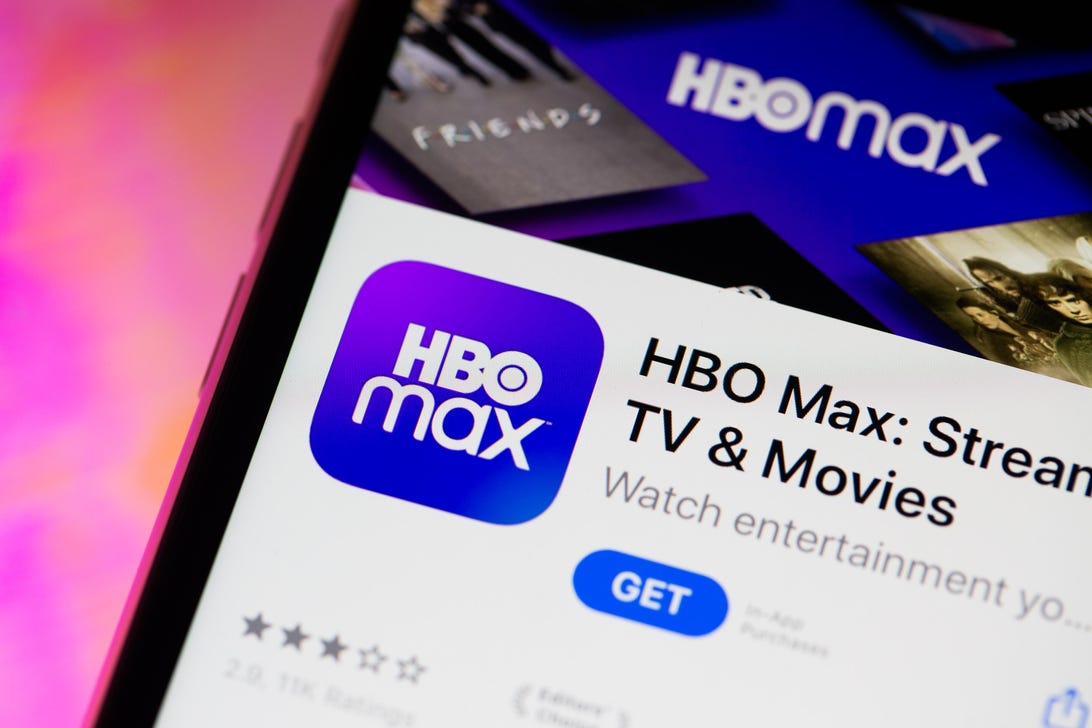
AT&T is merging its WarnerMedia assets with Discovery's.
Angela Lang/CNETHBO Max's plot to take on Netflix and Disney Plus just got a lot twistier. In a seismic jolt to the media industry, parent company AT&T said Monday that it plans to spin off its WarnerMedia division -- home to its entire media business, including streaming service HBO Max -- and merge it with Discovery, known for reality shows and other unscripted programming on its cable networks and its own streaming service Discovery Plus.
Both companies hope the combo will be a global entertainment titan to truly challenge Disney and Netflix, and streaming was central to AT&T's and Discovery's decision to fuse their media operations. But the deal also shakes up assumptions about the future shape of both HBO Max and Discovery Plus, the two companies' streaming services -- and maybe other services they haven't launched yet. News network CNN, one of WarnerMedia's channels, for example, is already developing its own subscription streaming platform, which executives promise to fund in the new company.
With the deal's closing still a year away, HBO Max and Discovery Plus are unlikely to meaningfully change as services anytime soon as a result of the agreement. Even the name for the combined company is still under wraps. On Monday, over the course of hours of interviews and public conference calls, executives didn't articulate the shape of their streaming services to come.
And a year is an epoch in the streaming age. A year ago, HBO Max didn't even exist. Discovery Plus was barely off the ground, operating in India only. Disney Plus was six months old and had half the subscribers it does now.
And the coming year is pivotal for HBO Max. After a bumpy launch last May, it appears to be hitting its stride, with a few crucial maneuvers still poised to play out in the months before its ownership changes yet again.
This year, all year, HBO Max is set to keep streaming new, theatrically released movies at no extra charge the same day each film hits US cinemas. Starting with Wonder Woman 1984 last December, WarnerMedia's Warner Bros. studio has been dropping all of its movies on HBO Max this way. That's included blockbusters like Godzilla vs. Kong in March, which has gone on to make $400 million at the global box office, the biggest Hollywood blockbuster since the pandemic began. And it's set to continue through the rest of this year, with big titles like In the Heights, Dune and Matrix 4 to come.
These big-name flicks, plus some buzzy originals like the so-called Snyder Cut of Justice League and a Friends reunion special dropping later this month, have attracted more people to try Max.
And next month, Max will turn the page on its next chapter by launching a cheaper tier, supported by ads, set to arrive in June. At $15 a month, HBO Max is among the priciest streaming services in the US. But the service plans to launch its less expensive, ad-supported tier in the US sometime in June, adding commercials to its programming in exchange for, reportedly, a $5 discount to $10 a month.
Those projects, combined with plans to launch in dozens of new countries internationally, makes the coming months a crucial time for HBO Max. "This is a defining moment for us," WarnerMedia CEO Jason Kilar said in a memo to employees Monday. "And I recognize it will take all we've got to keep collective focus on the mission."
Kilar, however, is emblematic of HBO Max's uncertain shape to come. He's reportedly maneuvering toward his exit, after he was kept in the dark about the Discovery deal until the 11th hour and was given no publicly defined role to help lead the new company.
HBO Max, Discovery Plus and beyond
Though interest in HBO Max appears on the rise, the company needs more momentum to reach exit velocity. HBO's regular channel and HBO Max, which launched in 2020, had a combined 44.2 million subscribers in the first quarter (the company doesn't break out its streaming subscriber count). But that pales compared with Disney Plus' 103 million subscribers -- and Netflix's 207 million subscribers.
For its part, Discovery has 15 million streaming subscribers worldwide, most of them for Discovery Plus. Its linear networks reach far more. Two-thirds of those subscribers -- 10 million -- joined since January, when the service launched in the US.
Discovery CEO David Zaslav, who will take the helm of the newly merged company, described the future of its streaming services only in broad strokes Monday.
"The combination will fully establish us as one of the leading direct-to-consumer streaming players worldwide," Zaslav said Monday during a conference call. "We'll figure out exactly how to do it in each market, and we'll probably experiment in a lot of markets."
That means, essentially, anything could happen to services like Max. Possibilities include the potential to combine them into a sort of HBO Discovery Max Plus uber-service. Or keep them separate with bundles that lower a customers' total subscription bill if they sign up for more than one in a package, a la Disney's three-fer bundle of Disney Plus, Hulu and ESPN Plus.
Monday's deal also virtually promises that a ton of money is going to get poured (again) into HBO Max and Discovery Plus.
The deal itself acknowledges that to compete, media companies must shovel mountains of spending into content and streaming to gain ground if they're to have anywhere to stand in the future of television and film. AT&T, with its focus on next-gen 5G mobility and other telecom services, didn't have an appetite for the big-ticket, flexible spending that's become the competitive standard in Hollywood.
The new, merged company will spend $20 billion a year on content. That puts it in the same ballpark as Netflix, which spent $17 billion last year and is expected to have a budget equal to that this year. But it's still unclear how much of that spending on programming will be devoted to streaming -- and how much will be, first and foremost, dedicated to the companies' sprawling matrix of regular, linear networks.
WarnerMedia is AT&T's unit that oversees popular entertainment and news brands such as HBO, HBO Max, CNN, TBS, TNT and more. It was the product of AT&T's hard-won $85 billion takeover of Time Warner in 2018, at the time built on the premise that combining AT&T's distribution power as a telecom company with the programming assets of a media conglomerate would be stronger together. It was approved after alleviating regulators' concerns that the combined company could have too much power compared with competitors.
Discovery is home to its namesake network, HGTV, TLC, Animal Planet and other nonfiction-focused networks. Internationally, Discovery also has assets and strategies in sports programming too.
Through the deal, AT&T would receive $43 billion in a combination of cash, debt securities and WarnerMedia's retention of certain debt, and AT&T's shareholders would receive stock representing 71% of the new company. Discovery shareholders would own 29% of the new company.
The deal was earlier reported by Bloomberg, which cited unidentified sources described as having knowledge of the matter.
AT&T said the deal is expected to close in mid-2022, subject in part to approval by Discovery shareholders. The boards of both AT&T and Discovery have approved the transaction, and no vote is required by AT&T shareholders, the company said.
"Max" - Google News
May 19, 2021 at 12:17AM
https://ift.tt/3osKUnp
AT&T's big Discovery deal makes HBO Max's future fuzzier - CNET
"Max" - Google News
https://ift.tt/2YlVjXi
Bagikan Berita Ini















0 Response to "AT&T's big Discovery deal makes HBO Max's future fuzzier - CNET"
Post a Comment